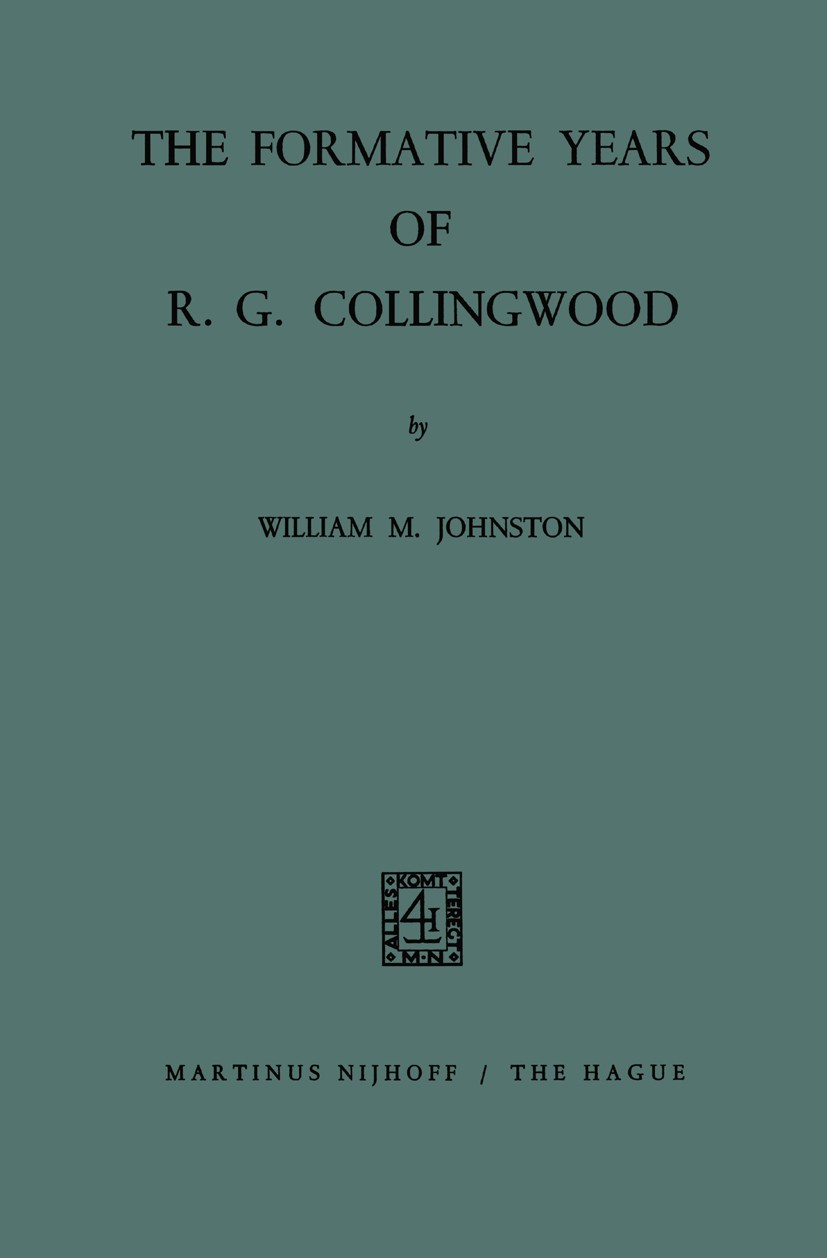| 书目名称 | The Formative Years of R. G. Collingwood | | 编辑 | William M. Johnston | | 视频video | http://file.papertrans.cn/910/909892/909892.mp4 | | 图书封面 |  | | 描述 | Collingwood and Hegel R. G. Collingwood was a lonely thinker. Begrudgingly admired by some and bludgeoned by others, he failed to train a single disciple, just as he failed to communicate to the reading public his vision of the unity of experience. This failure stands in stark contrast to the success of Georg Wilhelm Friedrich Hegel, who won many disciples to a very similar point-of-view and whose influence on subsequent thought, having been rediscovered since 1920, has not yet been adequately explored. Collingwood and Hegel share three fundamental similarities: both men held overwhelming admiration of the Greeks, both possessed uniquely broad knowledge of academic controversies of their day, and both were inalterably convinced that human experience consti tutes a single whole. If experts find Collingwood‘s vision of wholeness less satisfactory than Hegel‘s, much of the fault lies in the atmosphere in which Col lingwood labored. Oxford in the 1920‘S and 1930‘s, sceptical and specialized, was not the enthusiastic Heidelberg and Berlin of 1816 to 183I. What is important in Collingwood is not that he fell short of Hegel but that working under adverse conditions he came so elose. Ind | | 出版日期 | Book 1967 | | 关键词 | 1922; Benedetto Croce; Great Britain; John Ruskin; archaeology; concept; education; history of literature; i | | 版次 | 1 | | doi | https://doi.org/10.1007/978-94-011-9481-5 | | isbn_softcover | 978-94-011-8678-0 | | isbn_ebook | 978-94-011-9481-5 | | copyright | Martinus Nijhoff, The Hague, Netherlands 1967 |
The information of publication is updating

|
|
 |Archiver|手机版|小黑屋|
派博传思国际
( 京公网安备110108008328)
GMT+8, 2026-1-16 11:57
|Archiver|手机版|小黑屋|
派博传思国际
( 京公网安备110108008328)
GMT+8, 2026-1-16 11:57


